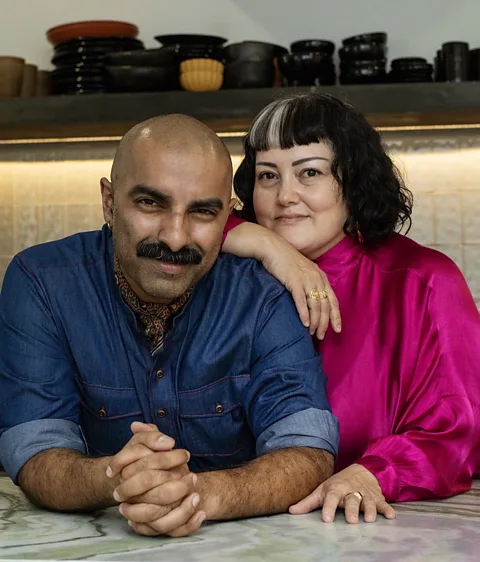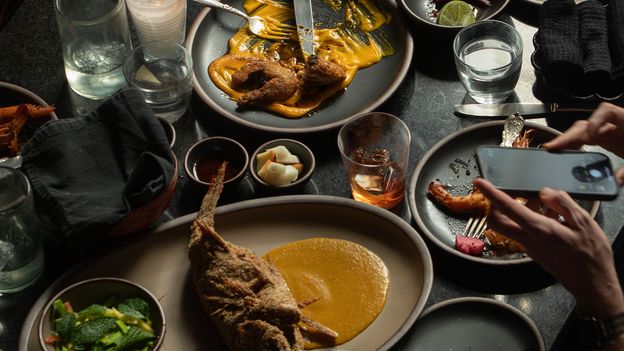Michelin-starred Masala y Maiz hopes to spread the trend across Mexico and around the world.
When Norma Listman and Saqib Keval, owners and chefs at one of Mexico City’s most popular restaurants, Masala y Maiz, won their first Michelin star, they were in New York City at a party for a fellow chef.
“Our team was calling us, and we weren’t answering the phone,” explains Listman with a laugh. “And then the nerdiest of our managers, the most serious one calls, and I was like, he never calls unless something is wrong. Turns out that we were live on the stage [at the Michelin awards].”
The couple, known for establishing the restaurant’s groundbreaking “Eat What You Want, Pay What You Can” initiative, is much more passionate about supporting community than prestigious accolades. Spending time celebrating a fellow chef they admire instead of attending an awards ceremony in honour of themselves is much more in Listman and Keval’s wheelhouse.
 Ana Lorenzana
Ana LorenzanaTake, for example, the pay-what-you-can model that has made Masala y Maiz so popular. Several times a year, restaurant-goers are offered a menu of the restaurant’s signature Mexican, African and Indian-fusion dishes alongside an envelope in which to leave whatever payment they have available or deem acceptable. There is no bill and no reservations, guests must line up for a first-come, first-served experience. But there is one requirement: diners must write how much of what they’ve left is intended for the staff rather than the restaurant itself.
The practice is intended to ensure that everyone in the city, regardless of their economic status, can enjoy the dishes prepared here: Camarones pa’pelar, a shrimp dish cooked with vanilla, lime and ghee, and the Kuku Poussin, a small fried chicken served with cheese, lettuce and a tamarind dressing. They are prepared exactly the same as on a normal day in both size and quality, but with no price tag attached. The couple says they don’t lose money on the event. Most visitors give something, even if it’s only original art for the staff, while others have paid more, they say, sometimes as much as three times the usual cost.
